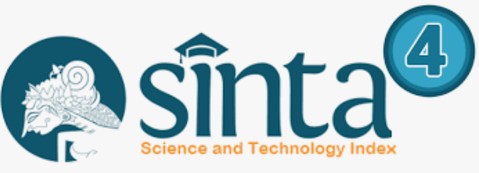THE ROLE OF WAKAF IN COMMUNITY WELFARE AS SEEN FROM THE PERSPECTIVE OF THE JOB CREATION LAW AL-QUR'AN AND HADITH
DOI:
https://doi.org/10.36085/jamekis.v8i2.7712Abstract
The government came up with the term Job Creation Law to respond to how complicated licensing regulations can make it difficult for us to move. According to the development theory, the progress of a nation is highly dependent on investment. Investment can drive economic growth to create social welfare. One of the efforts to be able to develop the community's economy is to maximize the capacity of institutions that have been regulated by Islamic teachings, such as waqf. The purpose of this study is to find out the role of waqf in community welfare reviewed from the Job Creation Law from the perspective of the Qur'an and hadith. This study uses a qualitative research method with library research. In this case, waqf has a role in the equitable distribution of welfare among the people, and poverty alleviation is one of the goals of waqf benefits. In the Qur'an and the hadith, waqf both teach to make the best possessions. Where waqf is a charitable activity that departs from obedience to Allah swt. The waqf in the Job Creation Law is not regulated directly, but is more related to the object of land acquisition. But there are arrangements related to waqf such as the management of waqf land and the utilization of waqf assets
References
Abidin, M. Z. (N.D.). Wakaf Dalam Perspektif Al-Qur’an Dan Sunnah.
Aditya, A., & Musthofa, M. A. (2022). The Role Of Wakaf In Establishing People’s Welfare. Milrev: Metro Islamic Law Review, 1(2), 269. Https://Doi.Org/10.32332/Milrev.V1i2.6214
A’yuni, D. S. (2018). Peran Wakaf Terhadap Kesejahteraan Masyarakat. Al-’`Adalah: Jurnal Syariah Dan Hukum Islam, 3(2), 120–130. Https://Doi.Org/10.31538/Adlh.V3i2.452
Fad, M. F. (2020). Omnibus Law Dalam Tinjauan Hifdzul Mal. El-Mashlahah, 10(1), 31–46.
Fawaid, M. W. (2022). Omnibus Law Dan Pengelolaan Ziswaf Di Indonesia. 8.
Hadi Ryandono, M. N., & Hazami, B. (2016). Peran Dan Implementasi Waqaf Dalam Peningkatan Kesejahteraan Masyarakat. Inferensi, 10(1), 239. Https://Doi.Org/10.18326/Infsl3.V10i1.239-264
Hazami, B. (N.D.-A). Peran Dan Aplikasi Wakaf Dalam Mewujudkan Kesejahteraan Umat Di Indonesia.
Latifah, L., Ritonga, I., Ghozali, M. L., & Huda, F. (2023). Peran Wakaf Tunai Saat Pandemi Covid-19 Di Indonesia. Al Maal: Journal Of Islamic Economics And Banking, 4(2), 247–264.
Lubis, U. S. (N.D.). Hak Kekayaan Intelektual Sebagai Objek Wakaf. 1.
Maharani, M. (2023). Tinjauan Ekonomi Islam Terhadap Kelayakan Bisnis Perkreditan Pada Ud. Mentari Qredit Kota Bengkul (Doctoral dissertation, Universitas Islam Negeri Fatmawati Sukarno).
Munardi, M., Damanhur, D., & Fitri, M. (2020). Analisis Pengaruh Wakaf Produktif Terhadap Kesejahteraan Masyarakat Di Mukim Matang Panyang. E-Mabis: Jurnal Ekonomi Manajemen Dan Bisnis, 21(2), 144–154. Https://Doi.Org/10.29103/E-Mabis.V21i2.605
Pengantar Metodologi Penelitian (1). (N.D.).
Project Increasing Zakat And Waqf Directorate General Islamic Community Guidance And Hajj Organizers: Fiqh Of Waqf, (Jakarta, October, 2003). P. 6
Rahmadi, “Introduction To Research Methodology,” Nd South Kalimantan: Antasari Press, 2011. P. 15.
Rahman, A. A. (2009). Peranan Wakaf Dalam Pembangunan Ekonomi Umat Islam Dan Aplikasinya Di Malaysia.
Rahman, M. F. (2009). Wakaf Dalam Islam. Al-Iqtishad: Jurnal Ilmu Ekonomi Syariah, 1(1). Https://Doi.Org/10.15408/Aiq.V1i1.2455
Rohim, A. N., & Ridwan, A. H. (2022). Wakaf Dalam Perspektif Al-Qur’an Dan Hadis: Esensi Dan Signifikansi Pada Tataran Ekonomi Dan Sosial. Al Quds : Jurnal Studi Alquran Dan Hadis, 6(2), 659. Https://Doi.Org/10.29240/Alquds.V6i2.3742
Siregar, L. M., & Setiawan, P. (N.D.). Wakaf Sebagai Ibadah Sosial Berkelanjutan.
Sunuwati, H. (2022). Hukum Perwakafan. In Iain Parepare Nusantara Press. Https://Omp.Iainpare.Ac.Id/Index.Php/Ipnpress/Catalog/Book/20
Undang-Undang-No.-41-2004-Tentang-Wakaf. (N.D.).
Zaldi, & Tanjung, D. (2023). Wakaf Dalam Perspektif Hukum Positif Dan Hukum Islam. Rayah Al-Islam, 7(1), 449–462. Https://Doi.Org/10.37274/Rais.V7i1.685







